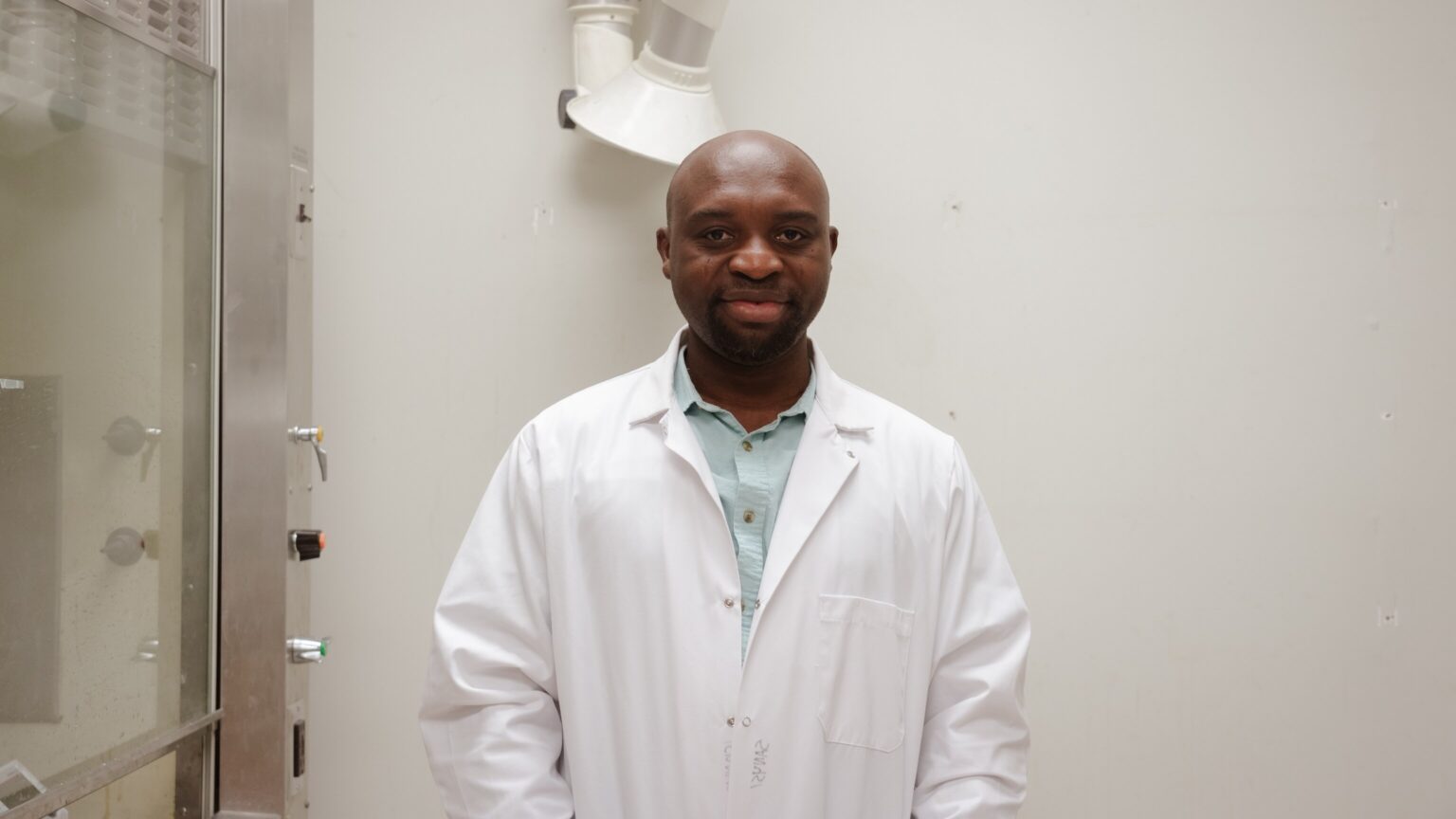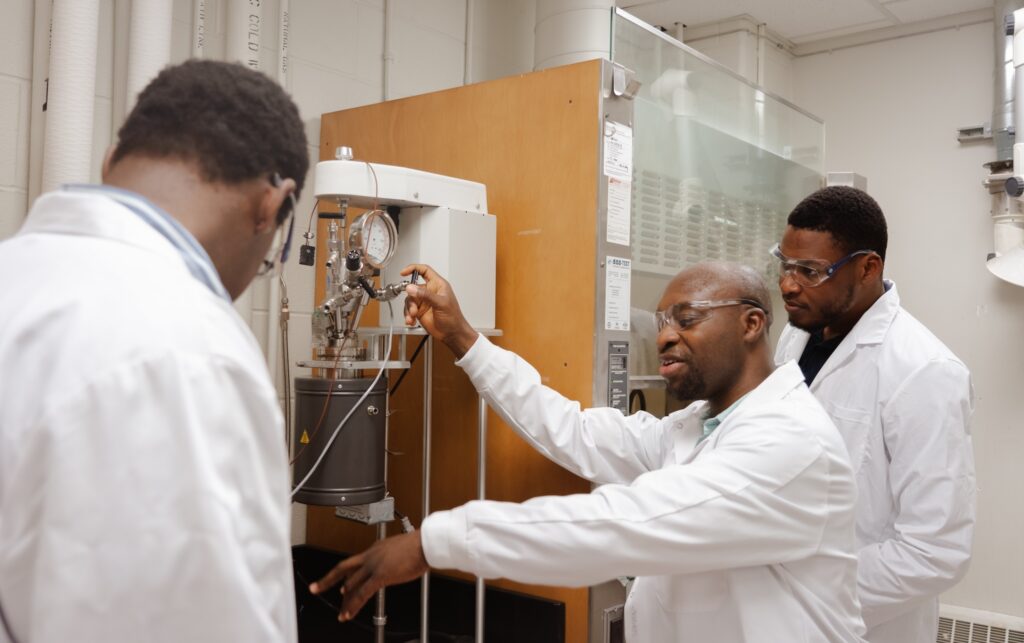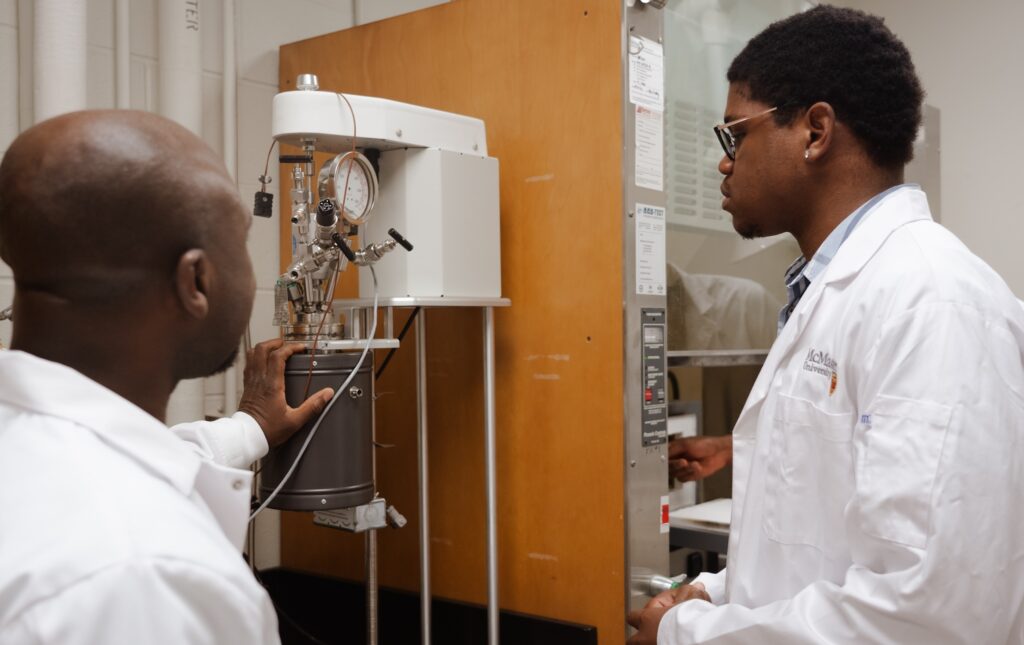
Food waste is a familiar concern to many, especially during a time of soaring grocery prices. However, agri-food waste—waste generated at any point in the food supply chain—might be less well-known. This issue is a focus for Shakirudeen Salaudeen, an Assistant Professor of Mechanical Engineering at McMaster University.
With the support of a $199,875 grant from the Ontario Ministry of Agriculture, Food and Agribusiness (OMAFA), he’s undertaking groundbreaking research on the conversion of agri-food waste into valuable bioproducts. This initiative, part of the Ontario Agri-Food Research Initiative (OAFRI), aims to develop innovative and sustainable technologies that will revolutionize the use of agri-food waste and crop residues in Ontario.
Supporting a new age of agriculture
The proposed research, led by Salaudeen, focuses on exploring green processes and innovative technologies to transform low-grade biomass into high-value products.
“As engineers, it’s our job to create solutions to pressing issues we face in our communities; climate change is a challenge we are all feeling the effects of now more than ever. The impacts of this research can make a real change in achieving a more sustainable energy and agricultural industry in Ontario, and potentially all of Canada, while subsequently having a positive effect in all of our efforts to achieve a greener future as a country.”
Specifically, the project will convert agri-food waste into bioproducts such as biomass-based supercapacitors, biocarbon for steelmaking processes, and biostimulants that enhance crop growth and disease resistance, aiming to diversify the use of Ontario’s agricultural residues.
In the short term, the research will promote sustainability and decarbonization in the energy and agricultural sectors by developing new uses for agri-food waste. The long-term goal is to commercialize technologies that efficiently convert biomass into renewable hydrogen, biocarbon, biomaterials, biofuels, and other industrially significant chemicals.
These efforts will help divert waste from landfills, reduce greenhouse gas emissions, replace fossil-based carbon and support Ontario’s transition from a linear to a circular economy.
Expanding research opportunities for students
Salaudeen’s Bio-Resources Engineering Lab (BREL) currently employs three PhD students, one master’s student and three undergraduate research assistants.
“I love working with students and currently have a dynamic team contributing to this research,” he says.
Mechanical Engineering PhD student Sanusi Akintunde is working in the lab and says the opportunity to conduct meaningful research under the mentorship of Salaudeen has been the experiential learning opportunity of a lifetime.
“It’s a great privilege for me to work with Dr. Salaudeen. Less than a year into my PhD, I have gained more knowledge and experience than I could have ever imagined, with access to world-class research instruments and facilities at McMaster.”


The grant will further advance the lab’s research on biocarbon development for steelmaking, synthesis of porous carbon for supercapacitors and sustainable agriculture practices.
About the Ontario Agri-Food Research Initiative (OAFRI) grant
OAFRI, a cornerstone of the Grow Ontario strategy, supports agri-food research and innovation projects including applied research projects that lead to new knowledge, solutions and technological advancements in agri-food products, processes or practices. The initiative aims to streamline projects from research to commercialization, ultimately increasing the quantity and quality of viable agriculture solutions in the current national market. OAFRI is jointly funded by the Governments of Canada and Ontario under the Sustainable Canadian Agricultural Partnership (Sustainable CAP), a 5-year federal-provincial-territorial initiative.
